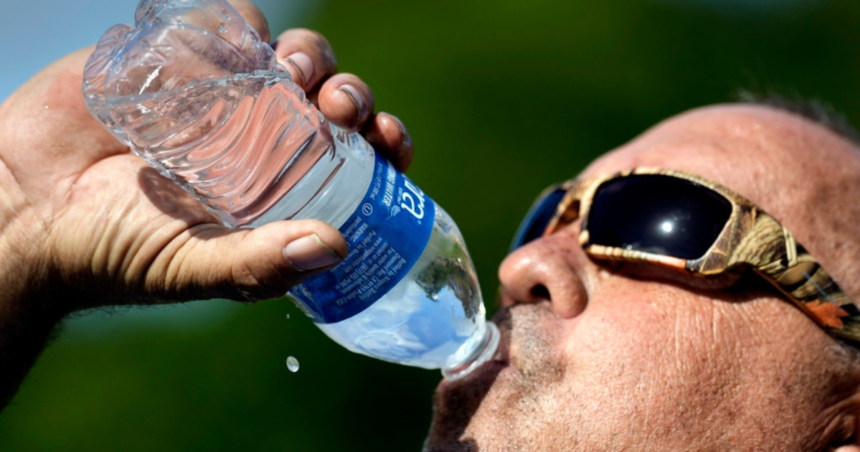Heat poses a significant risk to health, with heat sickness like heat exhaustion or heat stroke being serious concerns. The best way to protect yourself is through preparation and prevention, especially since certain medications and health conditions can increase the risk of heat illness.
“Be cautious of what you consume,” advised Dr. Joshua Feinstein, an ER Physician at Memorial Hermann Medical Center, in an interview with Scripps News.
Staying hydrated by drinking plenty of water and avoiding excess sugar can help prevent dehydration, keeping your body cool. Understanding the impact of medications, whether they are over-the-counter or prescribed, is crucial as they can affect the body’s ability to regulate temperature.
“Many cold remedies contain decongestants that can redirect blood flow in a way that impairs sweating,” Feinstein explained.
Certain medications like Parkinson’s drugs, antihistamines, and antipsychotics can inhibit sweating. Additionally, aspirin, laxatives, beta blockers, and blood pressure medications can reduce thirst sensation or the body’s cooling mechanism.
However, it is important not to stop taking prescribed medications. If concerned, individuals should consult with a pharmacist or healthcare provider to assess their specific risks.
Medications should never be left in a hot car, as heat and moisture can alter their potency and chemical composition before their expiration date. According to the CDC, inhalers may burst, EpiPens might malfunction, and insulin could lose effectiveness if exposed to heat.
Weather
A heat dome is covering regions of the US, triggering excessive heat warnings
2:18 PM, Jun 04, 2024
People with chronic health conditions are also at higher risk for heat-related illnesses.
Dr. Frank Chae, Medical Director of Bariatric Surgery Program at Sky Ridge Medical Center, warned that extreme heat can have severe consequences for obese individuals with conditions like diabetes and heart disease.
If experiencing weakness, dizziness, tingling, or other unusual symptoms, it’s essential to seek shade, hydrate, and possibly seek medical attention. According to Feinstein, if symptoms persist or worsen, consulting a healthcare professional is crucial.
Recent data from the Associated Press revealed that last summer saw 2,300 heat-related deaths, with more than 119,000 cases of heat illness treated in emergency departments by the Centers for Disease Control and Prevention.





